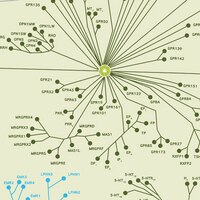What is the role of beta-adrenergic signaling in heart failure?
Lohse, Martin J, et al.
Circ. Res., 93: 896-906 (2003)
2003
概要を表示する
This review addresses open questions about the role of beta-adrenergic receptors in cardiac function and failure. Cardiomyocytes express all three beta-adrenergic receptor subtypes-beta1, beta2, and, at least in some species, beta3. The beta1 subtype is the most prominent one and is mainly responsible for positive chronotropic and inotropic effects of catecholamines. The beta2 subtype also increases cardiac function, but its ability to activate nonclassical signaling pathways suggests a function distinct from the beta1 subtype. In heart failure, the sympathetic system is activated, cardiac beta-receptor number and function are decreased, and downstream mechanisms are altered. However, in spite of a wealth of data, we still do not know whether and to what extent these alterations are adaptive/protective or detrimental, or both. Clinically, beta-adrenergic antagonists represent the most important advance in heart failure therapy, but it is still debated whether they act by blocking or by resensitizing the beta-adrenergic receptor system. Newer experimental therapeutic strategies aim at the receptor desensitization machinery and at downstream signaling steps. | 14615493
 |










